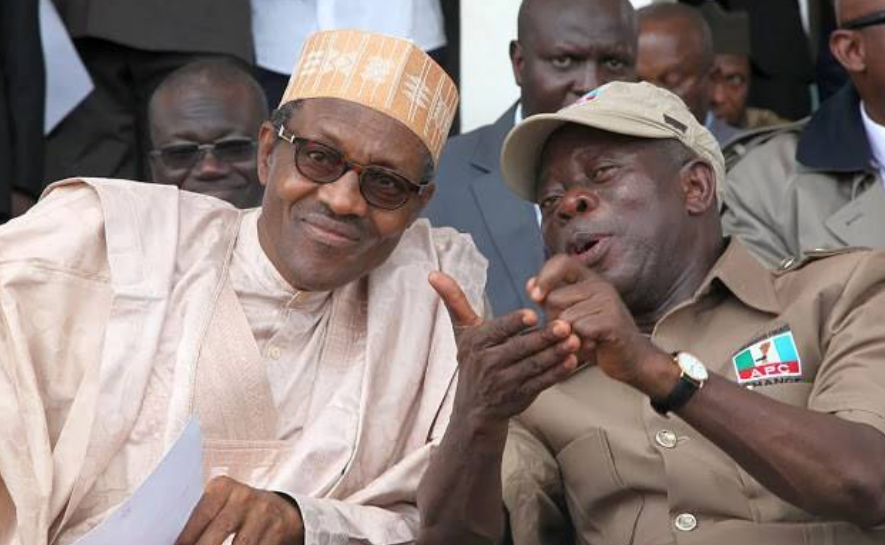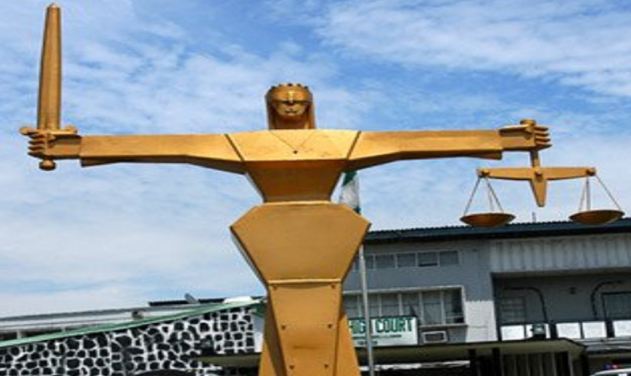A lawyer to the Chief Justice of Nigeria, Walter Onnoghen, has shed light on the purported resignation of his client.
Adegboyega Awomolo who is lead counsel to the embattled CJN in his false assets declaration trial said Onnoghen’s decision is a retirement and not a resignation from office.
Recall that the media was awash of his resignation as CJN on Friday.
However, the presidency was yet to confirm receipt of the letter as both presidential spokesmen Femi Adesina and Garba Shehu were said to be out of the country on an official assignment.
He said Onnoghen sent his notice of retirement to President Muhammadu Buhari in line with constitutional provisions.
“What he has done is to send his notice of retirement to the President. And he has done so, in accordance with the provisions of the constitution.
“His position from day one has been that it is only the NJC that can discipline him. Now that the NJC has spoken, out of respect for the NJC and the office of the Chief Justice of Nigeria and Nigerian Judiciary, he sent his letter of retirement, not resignation. He never resigned.
“All he has done is to send a letter to the president, saying thank you. I have served this country for about 32 years. I want to retire. That’s all he has done,” Awomolo told Premium Times in an interview.
Meanwhile, the ruling All Progressives Congress (APC) in a reaction on Friday evening said the CJN’s resignation was an affirmation of the legitimacy of the action earlier taken by President Muhammadu Buhari to suspend the CJN.
The party said as earlier seen with the Senate President, Bukola Saraki’s asset declaration trail at the Code of Conduct Tribunal (CCT) and now the CJN’s trial, “Now, you have seen the head of National Assembly, Senate President, in the dock. Now, you have seen the CJN in the dock. So, one day, we will see a President that also misbehaves in the dock, which now shows that nobody is above the law and that we are all equal before the law.
“So, anybody who finds himself in any position should now begin to look closely at his own actions, knowing full well that today may protect him but tomorrow may expose him.”
Humble rise to the peak
Onneghen was born on the Dec. 22, 1950 at Okurike Town, Biase Local Government Area of Cross Rivers.
He began his primary school education at the Presbyterian Primary School, Okurike Town between 1959 and 1965.
Before his appointment as the Chief Justice of the Federation, he worked with the Ministry of Justice, Ikeja, Lagos, Ogun, between 1978 and 1979, as the Pupil State Counsel.
Between 1989 – 1998, he was a High Court Judge of Cross River Judiciary.
During his time as the High Court Judge of Cross River, he was made the Chairman of Cross River State Armed Robbery and Firm Arms Tribunal and he held the post for 3 years from 1990 – 1993.
Sometime in 1996 while still holding the post of High Court Judge of Cross River, he was appointed the Chairman, Judicial Enquiry into the Crisis between Students of the University of Calabar and Obufa Esuk Orok Community, Calabar.
In 1998, he was the Chairman, Failed Banks Tribunal, Ibadan Zone.
Between 1992 and 2004, he served as the Judge, High Court of Rivers, while from 1998 to 2005, he served as Justice of the Court of Appeal.
In 2007, Justice Onnoghen played a huge role in 2007 election which saw the Late Umaru Yar’adua as President of Nigeria.
He had a dissenting judgment that indeed annulled the presidential election. His position was however a minority judgment.
After being nominated as the Chief Justice of the Supreme Court of Nigeria by the Acting President, Professor Yemi Osinbajo, he was confirmed by the Senate on March 1, 2017, and sworn in on March 7.
Suspension and trial at CCT
Onnoghen’s trials for false assets declaration started when a petition was filed by the civil rights group at the Code of Conduct Bureau (CCB), alleging that he owned sundry accounts.
It alleged the accounts were primarily funded through cash deposits made by himself up to as recently as August 10, 2016, which appeared to have been run in a manner inconsistent with financial transparency and the code of conduct for public officials.
The trial began on Jan. 14 at Code of Conduct Tribunal but Onnoghen was absent.
Also on Wednesday, the National Judicial Council abstained from considering allegations relating to the assets declaration that were levelled against Onnoghen.
On Feb. 11, the council set up a preliminary complaints assessment committee to review the responses given to it by Onnoghen, and Muhammad who is acting in his stead.
Onnoghen is accused of failing to fully declare his assets, while Muhammad is facing allegations of misconduct.
The NJC said it reconvened and resolved to constitute into the Preliminary Complaints Assessment Committee in accordance with Regulation 17 of the National Judicial Council Judicial Discipline Regulations, 2017.
Tortuous journey to retirement
Onnoghen’s retirement is coming 51 days after his trial began at the Code of Conduct tribunal on January 14 and 58 days after the petition which birthed the said trial was submitted.
Onnoghen, who was appointed a justice of the Supreme Court in 2005, had been recommended for the position of Chief Justice of Nigeria on October 6, 2016, by the NJC under its erstwhile leader, Mahmud Mohammed. He was, however, not confirmed by the Senate until March 7, 2017, due to the reluctance of President Muhammadu Buhari to submit his name to the Senate for confirmation.
He was eventually sworn-in on March 7, 2017, by then Acting President Yemi Osinbajo, after the Senate confirmation. Onnoghen’s appointment as chief justice was billed to expire on December 22, 2020, after he attains the compulsory retirement age of 70 years.

